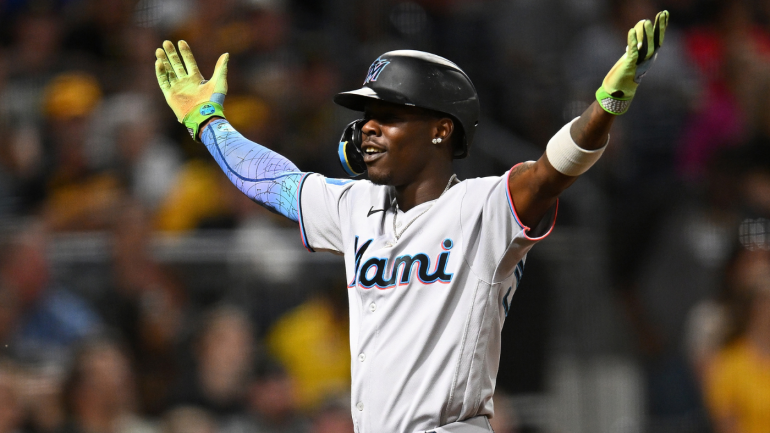
Perhaps when we are tempted by assumptions at the outset of the Major League Baseball postseason, we're letting our experiences with other sports inform our thinking. Other major sports leagues have a way of adhering to expectations in their playoffs at a level simply foreign to a frankly weird sport like baseball.
Baseball isn't like the others in this way. Its structural elements are such that the very worst team can get the best of the very best team, even across multiple games. In some ways, we've been conditioned to ignore this basic reality, and it goes beyond applying basketball and football thinking to baseball. MLB team owners – all in the service of suppressing labor costs at the top end – often make a show of repeating specious articles of faith like "small-market teams can't win," even in the face of overwhelming evidence to the contrary. Too many of us believe this and wield it too readily. (This isn't lost on the teams themselves, who often take a "just get there and see what happens" approach to the postseason.)
That brings us back to these playoffs and the temptation to think only the very best teams – those who proved themselves the best across the 162-game sprawl of the regular season – are the ones with hope in October and November. By extension, the worst teams in the playoffs surely won't make it all that far.
Cloudy perceptions aside, you know this isn't true, and history teaches us this in undeniable ways. Specific to this year, the Miami Marlins and Arizona Diamondbacks, each with a playoff-mere 84 wins on the season, may consider this to be uplifting news. Now let's dig in a bit further.
We went back to 1995, when the postseason first added the Division Series round and grew from four teams to eight, and tracked how the worst team fared in each postseason through last year's 12-team tourney. For these purposes, "worst team" is defined as the team with the lowest regular-season winning percentage in a given postseason. Sure, things like run differential and strength of schedule can make this imprecise at times, but it works well enough. In the case of multiple teams having the same worst record, we track how all of them fared.
Now let's run down the key findings from our research:
- These worst playoff teams averaged 87.7 wins per season. Note that win totals for the partial 1995 and 2000 seasons aren't included in this figure, but the '95 season is included for other findings to come. The 2020 season, which was limited to just 60 regular-season games because COVID-19, was not a part of any data sample.
- Overall, teams with the worst regular-season record among their playoff peers combined to go 124-126 in postseason play. That's a winning percentage of .496. In essence, these worst teams had a coin-flip chance of winning a given playoff game, which is of course much better odds than you'd expect.
- Of the 33 worst teams across 27 postseasons, 16 – or 48.5% – made it at least to the League Championship Series.
- Of those 33 worst teams, seven – or 21.2% – won the pennant.
- Of the 27 postseasons we analyzed, five – or 18.5% – saw a team with the worst record crowned as World Series champs. Those five Cinderellas are the 2021 Braves, the 2014 Giants, the 2011 Cardinals, the 2006 Cardinals, and the 2000 Yankees.
- Maybe that 18.5% figure sounds a bit discouraging? We're not going to tell you how to feel, but we will tell you that the team with the best overall record among each year's playoff field has won the World Series just seven times since 1995. That means just 25.9% of postseasons have seen the team with the best record win it all. That's just two extra belts and titles relative to the worst teams across more than a quarter-century of playoff baseball.
- While "wild-card team" isn't a perfect proxy for "worst team in the playoffs as defined by regular-season record," there's quite a bit of overlap. On that front, 14 wild-card teams have reached the World Series since 1995, when the wild card first came into existence. Of those 14 wild-card pennant winners, four have joined the ranks since 2012, when wild-card teams were tasked with playing an additional playoff round.
- Over that same span, seven wild-card teams have won the World Series. You might recognize that as the same number of best-record teams to win the World Series since 1995.
So if you're a fan of the D-Backs or Marlins or even some other wild-card team (or perhaps the October-blighted Twins) and you were light on hope leading up to the start of the postseason, then perhaps all of the preceding will help your state of mind. This, after all, is October and this is baseball. That means if you're still alive then you have very real hopes of hoisting the trophy in the end.
![[object Object] Logo](https://sportshub.cbsistatic.com/i/2020/04/22/e9ceb731-8b3f-4c60-98fe-090ab66a2997/screen-shot-2020-04-22-at-11-04-56-am.png)


















